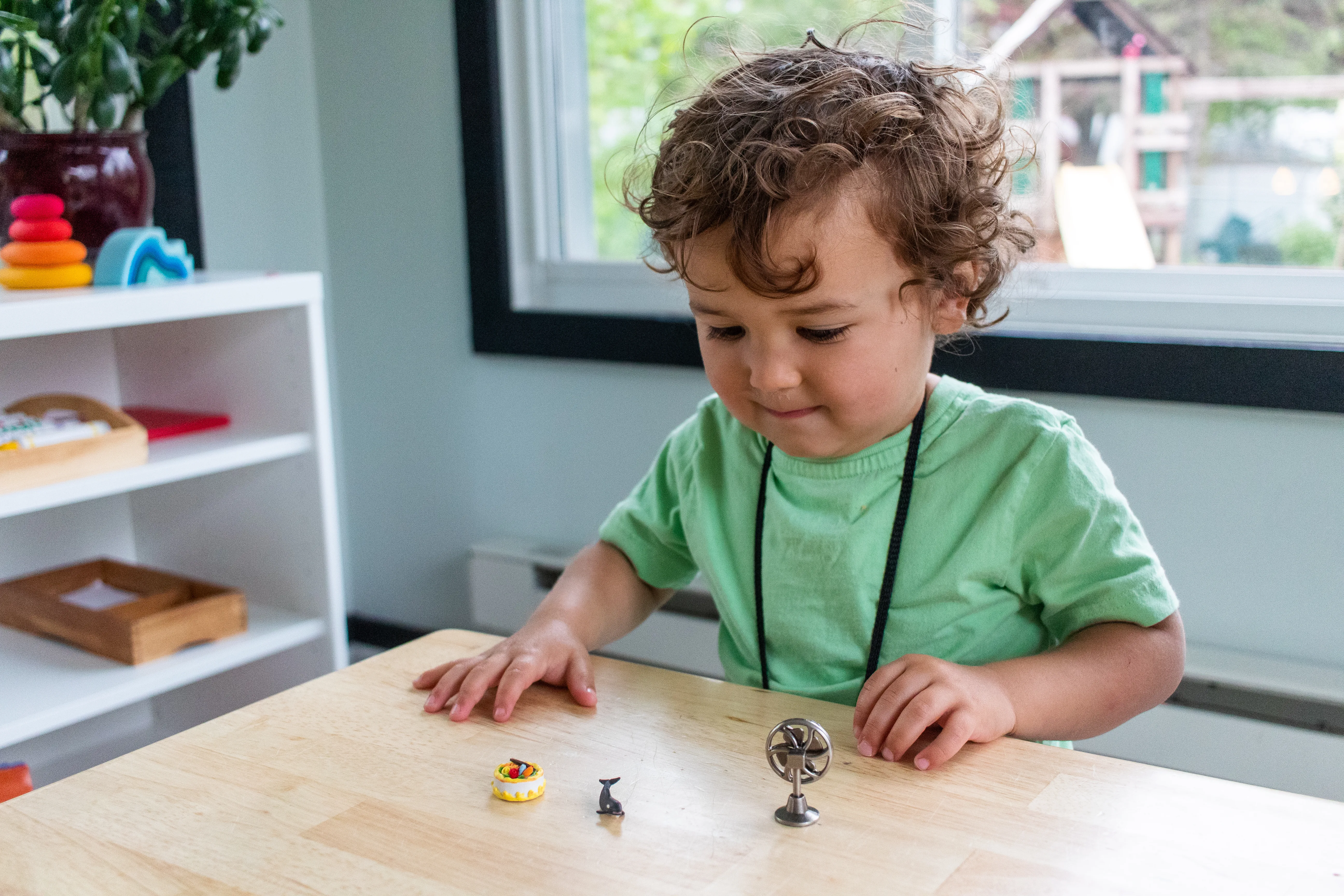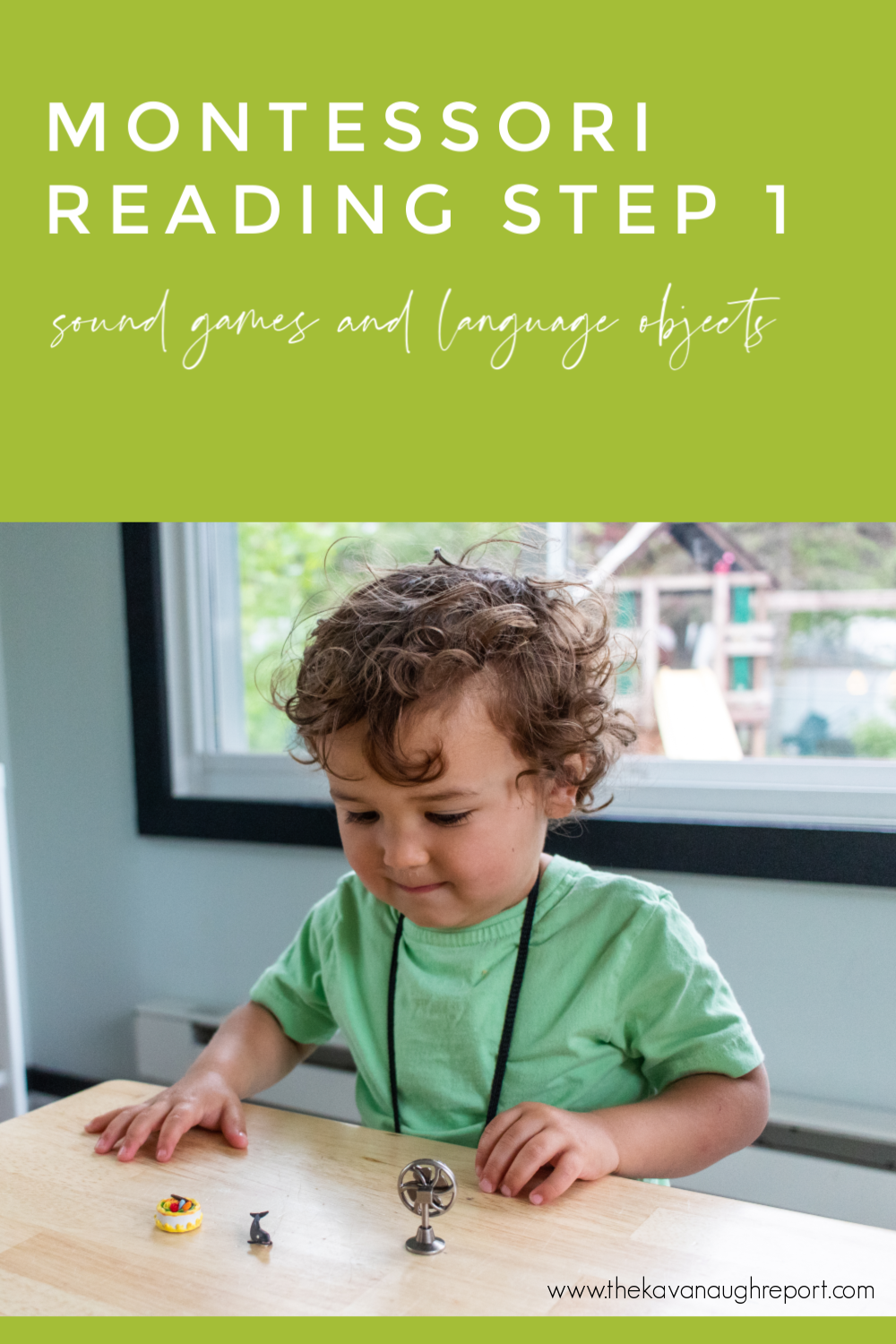June 17, 2020
What are Montessori Sound Games and Language Objects?
Tagged in:
3-years-old,
Language,
Montessori,
Montessori Child,
Montessori Education,
Montessori Toddler,
Preschool,
Recently, I've been working on a series of posts dedicated to sharing how we support language development in our Montessori home. In particular, I've been sharing how we support our children's journey towards reading and writing. Today, I want to continue that series by talking about two fundamental ways we support a child's language journey at home - sound games and language objects.
See other posts in this series:
Language Objects
This post contains affiliate links at no cost to you.
I'll start with language objects because they are so often used while playing sound games! Language objects are miniature objects in the form of common items, animals, and food that can be used for a variety of learning from toddlerhood through around age 6. These tiny objects strongly appeal to older toddlers and preschoolers and entice them to ta variety of kinds of language work.
These small objects can be found in a variety of places, often around your house. While you can buy a kit, I’ve collected most of mine from a variety of random places from garage sales, to museum gift shops and thrift stores. Safari Ltd. good luck minis are also a great source of objects. You'll just want a variety of objects that start with different sounds, some that are phonetic words, and other that contain fun phonograms.
One thing to keep in mind with language objects is that they aren’t a toy for open ended play. They are a tool to entice certain language work that is a bit abstract without them. In order to keep their appeal, they are often stored in a special bowl or box on your child's shelf. They are treated with great excitement and care by the adult and are most often used in games where the adult and child are working together.
Sound Games
Sound games are one of the most common ways that we use language objects in our home. These games are an extremely important first step in Montessori toward letter learning. These games help children learn the sounds that each letter of the alphabet makes. Since words are a collection of sounds, if a child knows sounds that are associated with each letter (instead of the letter names, for example) then it becomes much much easier for them to write words and to read them.
Sound games can start around age 2.5-3 years-old for most children. They give us the opportunity to help these kids listen for all the different sounds that make up a word. Before we connect these sounds to their letter forms, we want to give kids the ability to hear the sounds. Just like everything with Montessori, the work is broken down into its smallest part and kids are given the ability to master each part of the task.
Sound games start with just one object. Then the adult says something like, "I-spy" or "I see" or "I'm thinking of.." "something that begins with the sound..." then say the sound of the object that is in front of you. So if its a miniature cake like Gus is working with you could say "I-spy something that begins with the sounds /c/" then your child would say the object in front of them. "Yes! A cake! /c/ /c/ /c/ cake!"
Once your child has mastered this, you can add a few more objects for your child to try find the one that starts with that letter. Then, the same process is repeated for middle sounds and ending sounds. Eventually, children get extremely good at breaking down everything they hear in a word and they have taken those important first steps to writing and reading.
In my next post, I'll go into more specifics of how we've used sound games with Gus and share some tips to make it successful!
Have you played with language objects or sound games with your child?




